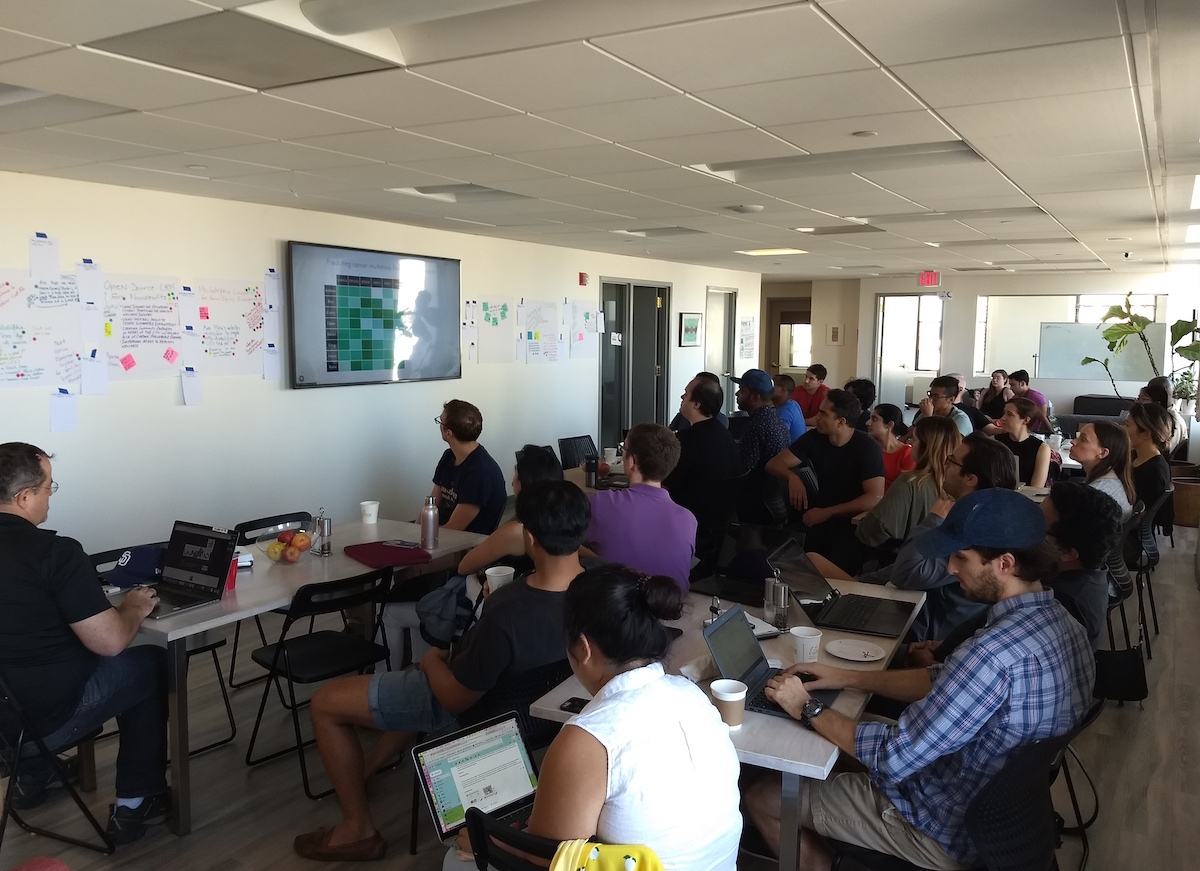Code for America brigades help technologists put their tech skills toward bettering their cities. It’s also an opportunity for those technologists to develop those sought-after skills, and add real experience to their resumes.
During a recent AMA chat on Technical.ly’s Slack, Code for Philly’s Julia Schuchard and Code for DC’s Charlotte Jackson discussed how their respective brigades have been connecting tech pros through civic tech projects during the pandemic, and how joining these local groups can boost volunteers’ expertise.
Below, read some takeaways from their conversation.
(The pair also discussed the benefits and pitfalls of the necessity of their work in filling gaps left by local and federal government. Check out our recap of that part of the AMA, featuring Code for Hawaii’s Ben Treviño, also CfA’s brigade program director.)
Joining a local brigade offers real professional experience.
For technologists looking for full-time roles in tech or to fine-tune their expertise, Schuchard said volunteering with Code for America offers hands-on technical experience, from building apps to helping nonprofits scrape data. In the case of Code for Philly’s fellowship program sponsored by Comcast, it can also offer paid work.
“We saw particular success among our tech fellows from this past year, who received mentoring and some professional growth activities,” she said.
So yup, you should add Code for America volunteering to your LinkedIn.
“I absolutely think it should go on the resume, particularly if you’re someone who’s been out of the work force for a while or if you’re trying to transition into tech from a non-tech role,” Jackson said.
Brigades also offer technologists a way to make change.
Code for America focuses on solving civic tech challenges. One example is a Code for DC project that automated a source for unreported car crash data. Jackson said it made DC Department of Transportation officials begin working with the brigade on the issue.
“It’s very cool to have such an impact but also, we’re definitely doing a job DDOT should be doing,” Jackson said. “I would highly encourage you, if you don’t see a project you’re interested in, to just start one.”
And Code for Philly developed PHLASK, a water-finding app that Schuchard said maintains a significant focus on “engaging stakeholders and advocacy around sustainability and resources in the city.”
Virtual meetups increase access.
As someone who joined Code for Philly at the start of the pandemic, Schuchard, who serves as the group’s communications lead, has mostly known remote brigade work. The shift to virtual eventually proved advantageous.
“It was a little disappointing when we first had to switch to all-virtual because it limits the social aspects of gathering for hack nights,” she wrote. “On the other hand, it opens up project participation to people who couldn’t otherwise attend hack nights due to physical location, work & parenting schedules, etc.”
Virtual meetups have also helped some brigades maintain momentum in bringing new technologists aboard during the pandemic. Schuchard was impressed to see a recent Code for Philly virtual open house receive a strong turnout.
“We recently had a well-attended virtual open house, and it seems like a lot of people are eager for the intersection of civic tech and social interaction after such an isolating time — I know I am, at least!” she said.
_
You can join or just follow along with conversations like this one in the #ama channel on our public Slack. Coming on Thursday, Aug. 26, Technical.ly reporters Holly Quinn and Paige Gross will lead a discussion with women-in-tech meetup organizers from across the mid-Atlantic.
Join the Technical.ly Slack Michael Butler is a 2020-2022 corps member for Report for America, an initiative of The Groundtruth Project that pairs young journalists with local newsrooms. This position is supported by the Lenfest Institute for Journalism.Join our growing Slack community
Join 5,000 tech professionals and entrepreneurs in our community Slack today!
Donate to the Journalism Fund
Your support powers our independent journalism. Unlike most business-media outlets, we don’t have a paywall. Instead, we count on your personal and organizational contributions.

Traditional PPE isn’t made for everyone. Here’s how one startup is fixing it.

Comcast introduces ultra-low lag Xfinity internet that boosts experiences with Meta, NVIDIA and Valve

This Canadian startup with a network of 100,000 is helping international college students find their careers


